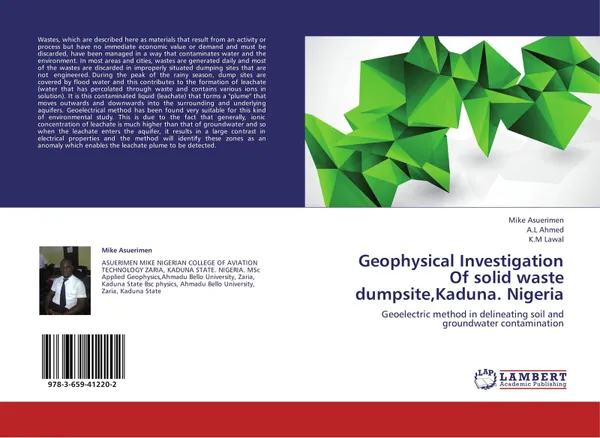Geophysical Investigation Of solid waste dumpsite,Kaduna. Nigeria
2013
84 страницы
Категория: Книги
Язык: Английский
Тираж: 500
Где найти книгу?
📓 Wastes, which are described here as materials that result from an activity or process but have no immediate economic value or demand and must be discarded, have been managed in a way that contaminates water and the environment. In most areas and cities, wastes are generated daily and most of the wastes are discarded in improperly situated dumping sites that are not engineered. During the peak of the rainy season, dump sites are covered by flood water and this contributes to the formation of leachate (water that has percolated through waste and contains various ions in solution). It is this contaminated liquid (leachate) that forms a "plume" that moves outwards and downwards into the surrounding and underlying aquifers. Geoelectrical method has been found very suitable for this kind of environmental study. This is due to the fact that generally, ionic concentration of leachate is much higher than that of groundwater and so when the leachate enters the aquifer, it results in a large contrast in electrical properties and the method will identify these zones as an anomaly which enables the leachate plume to be detected.
Мнения
